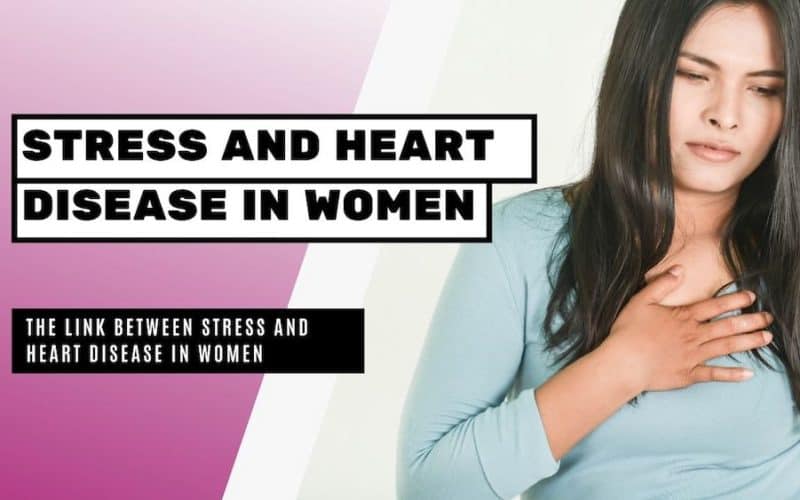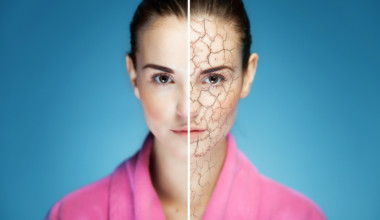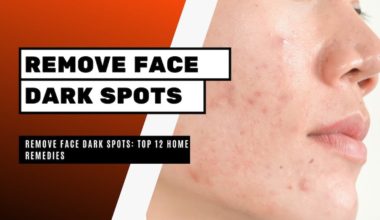Heart disease has historically been considered a “man’s disease” because studies had been focused on men, their stressors, and their risk factors for developing heart disease. This is dangerous because many women have no idea that they are at risk.
According to Harvard Medical School, women are more prone to stress-related heart disease than men. How does stress contribute to heart disease in women?
In this article, we have gathered important information regarding stress and heart disease in women which will help you to understand the link between stress and heart disease.
Table of Contents
Link Between Stress and Heart Disease in Women:
1. Understanding how stress affects the cardiovascular system
The human body is hard-wired to avoid danger. When danger is perceived, the body immediately goes into a “fight or flight” state. The person experiencing this will breathe faster, their heart will begin to beat more rapidly, blood pressure rises, and the body routes sugars to muscle in preparation for running away.
Unfortunately, the body can’t tell the difference between a genuine life-threatening emergency, such as a lion in the kitchen, or a less dangerous stressor like a missed due date on a bill. Your body treats them both the same.
If the body is kept in a constant state of “fight or flight,” it will eventually begin to wear down. Too much constant stress leads to very unhealthy habits such as inadequate sleep habits, poor dietary choices, smoking, and alcohol abuse.
In turn, these habits will contribute to heart disease in women and men alike, with symptoms such as hardened, narrowing arteries, high cholesterol, and chronically high blood pressure as well as obesity.
2. Heart disease in women
It’s important to have a clear understanding of how stress can lead to heart disease in women. A new study shows that women in high-stress jobs are 40% more likely to develop cardiovascular complications and more likely to run the risk of developing heart-related diseases than men. The risks, of course, increase with age.
Stress can lead to depression, which will further complicate the issue. Depression is nearly twice as likely to strike women than men. It leads to inactivity and poor lifestyle choices, which, in turn, contribute to deeper feelings of stress and, ultimately, heart disease in women. Depression and anxiety often go hand in hand with high levels of stress.
3. How do jobs affect heart disease in women?
Women are frequently tasked to carry much more weight than men typically are, resulting in a completely out of whack work-life balance.
They are commonly expected to work, maintain the households, run the errands, cook, and care for the children. It’s a woman’s natural proclivity to take on far more than she should, even in today’s “equal rights” world.
It’s not uncommon for her familial and work obligations to leave her with no time to relax at all. This leads to a very stress-filled life, placing her at a higher risk of stress-related heart disease.
Women are also far more likely to work in professions that involve stress, such as healthcare. Other job stresses will include having jobs without security, highly competitive jobs, and worries about losing the job.
4. Stress links to heart disease in women
As we’ve already covered, stress can lead to heart disease in women and men alike, but women seem to be more prone to stress-related heart disease. Stress triggers the release of “stress hormones,” such as adrenaline and cortisol. Adrenaline keeps your body in the “fight and flight” state, while cortisol encourages your body to use sugars. The stress hormone cortisol has been linked with obesity.
Women experiencing stress will be less likely to make healthy lifestyle choices and are at risk of weight gain, decreased exercise, poor diet, and even alcohol or tobacco abuse. These are all risk factors commonly associated with heart disease, arteriosclerosis, and high blood pressure.
Genetics can play a part in how well you cope with stress, as well as your risk of developing heart disease. Also, if you have a history of traumatic life experience, you may be less likely to be able to cope with life’s everyday stressors healthily.
5. Broken heart syndrome
If you’ve ever heard that someone “died from a broken heart,” research has determined that this phenomenon is real. It’s also known as Takotsubo cardiomyopathy or stress cardiomyopathy, and apical ballooning syndrome.
While men and women can both suffer broken heart syndrome, women are 90% more likely to experience it, especially women who have experienced menopause.
It is caused most commonly by an underlying disease process, but it can also be caused by extreme stress or shock, such as the death of a loved one. Broken heart syndrome can create a genuine, severe, and measurable failure of the heart muscle. It is usually only temporary, but deaths can occur if the failure is severe enough.
6. Understand when you are stressed
Heart disease in women can sneak upon them. For one thing, very few women are aware of just how serious their risks for developing cardiovascular disease really are.
They are also less likely to understand their own symptoms because, for women, the symptoms can be vastly different than for men. Women need to look for the symptoms of stress that may contribute to heart disease:
- Problems falling asleep or frequent waking throughout the night
- Physical aches and pain
- Headaches
- Irritability
- Changes in appetite
- Problems focusing and concentrating
- Feelings of being out of control
- Mood swings
- Fatigue
- Patterns of avoiding the stressors (frequently calling off of work sick, for instance)
- High blood pressure
- Anxiety attacks or depressive behaviors
- Digestive issues
7. Decrease your stress levels
In order to reduce heart disease in women, women should learn to address their stress in a healthy way. Such as
- Delegate your responsibilities if possible: share the chores.
- Focus on healthy eating: make it a habit to choose healthy meals and snacks.
- Get a restful night’s sleep: Do whatever you need to do to rest. Consider over the counter sleep aids, especially natural ones like valerian root and melatonin.
- Exercise: Make an exercise program and stick with it. Not only will this help you maintain a healthy weight, but it also releases endorphins to relax you and boost your mood. Aim for at least 60 minutes of cardio five times a week with some strength training at least twice weekly.
- Go natural: natural stress relief can include aromatherapy or anti-stress supplements containing valerian root or St. John’s Wort.
- Ask a professional: If the stress is overwhelming, you may need professional help. Seek the advice of your doctor or even a counselor to help you get your stress to a manageable level Protection.
Here are a few more tips to help you protect yourself from the effects of stress:
- Monitor your blood pressure regularly.
- Try to remove stress as often as possible and practice relaxation techniques.
- Visit your doctor regularly to monitor your cholesterol and blood markers.
- Ask your doctor about taking one 81mg heart dose of aspirin per day.
Understanding the link between stress and heart disease in women is the first step to making healthy lifestyle changes to protect yourself.





